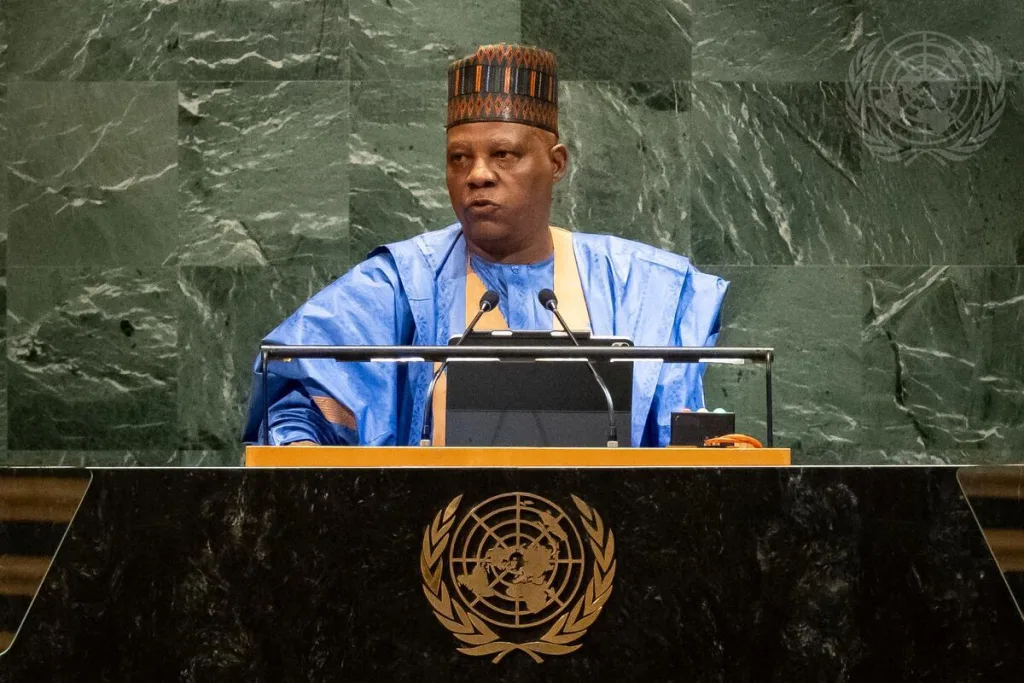Vice President Kashim Shettima, speaking on behalf of President Bola Tinubu at the 80th United Nations General Assembly in New York, delivered a national statement that placed humanitarian concerns, multilateral reform, and Africa’s voice at the center of Nigeria’s foreign policy.
Humanitarian Stand: “A Question of Justice”
In a departure from the usual development-heavy messaging, Shettima strongly condemned the ongoing human suffering in Gaza. He highlighted the plight of civilians, children, and families displaced by conflict, framing Nigeria’s position as a matter of both morality and international law.
Analysts say this marks a shift toward “moral diplomacy,” projecting Nigeria as a principled voice on global justice, while still reaffirming commitment to peace and stability.
Reforming Global Institutions
The Vice President reiterated Nigeria’s support for multilateralism and the need for urgent reforms in global institutions, including the United Nations. He stressed that Africa, with its growing population and challenges, must have a stronger voice in global decision-making.
Shettima also pointed to the need for climate action and fairer international financial structures to allow developing nations like Nigeria to pursue sustainable growth.
Development Goals at Home
While his speech leaned on humanitarian issues, Shettima did not leave out Nigeria’s internal priorities. He restated the Tinubu administration’s ambition to achieve at least 7 percent annual economic growth, anchored on macroeconomic stability, investment in infrastructure, health, and education.
He called on international partners, including foundations and multilateral organizations, to support Nigeria’s push for better healthcare, digital infrastructure, and educational reforms.
Africa First: Strengthening Bilateral Ties
Beyond the UN podium, Shettima used his time in New York to deepen regional and bilateral relations. In a meeting with Namibia’s president, he underlined the importance of African unity, remarking, “We are all Africans, and the Nigeria–Namibia relationship should be taken to the next level.”
This reflects Nigeria’s continued bid to strengthen continental solidarity while pursuing wider diplomatic influence.
Observations and Outlook
Nigeria’s stance at UNGA-80 appears to pivot its international posture: from a focus on economic diplomacy toward a blend of development and moral diplomacy.
However, some observers note that Nigeria’s strong voice on humanitarian crises abroad will invite scrutiny at home, where the country still grapples with its own challenges of insecurity and displacement.
Still, by aligning humanitarian concerns with development ambitions, Shettima’s message positions Nigeria as a country eager to shape conversations not just about Africa, but about global justice and reform.
